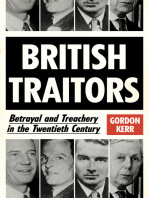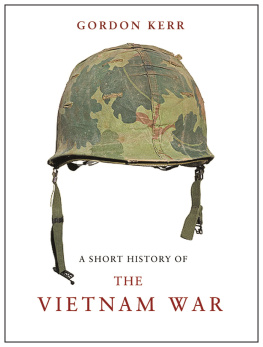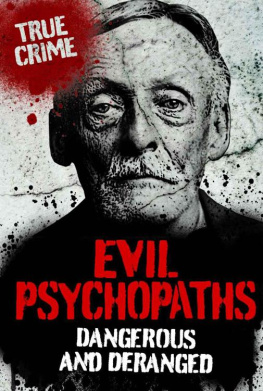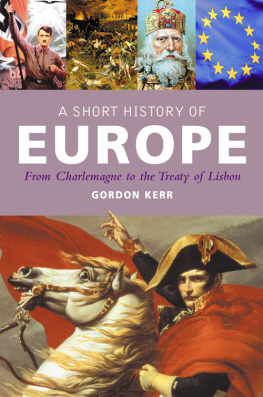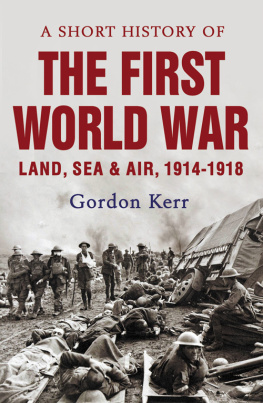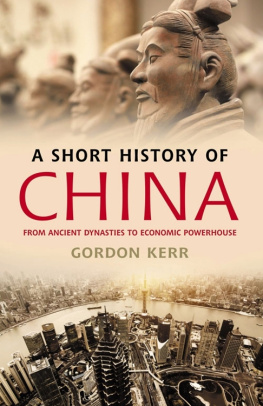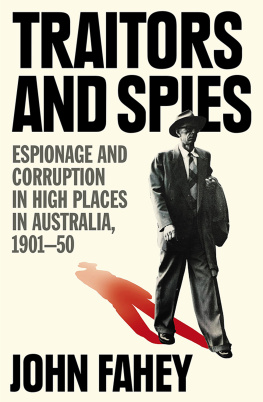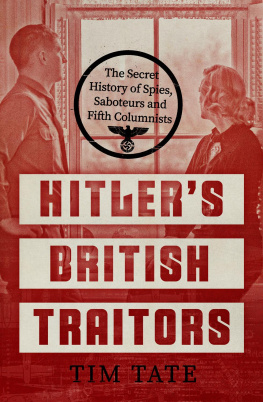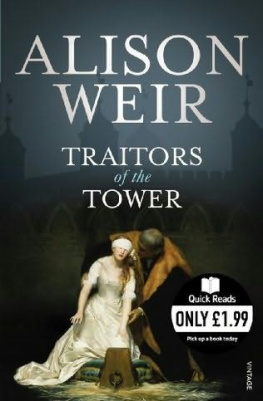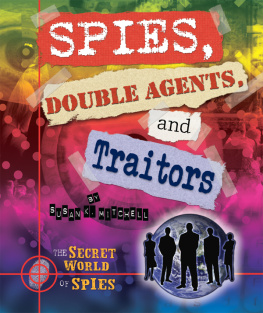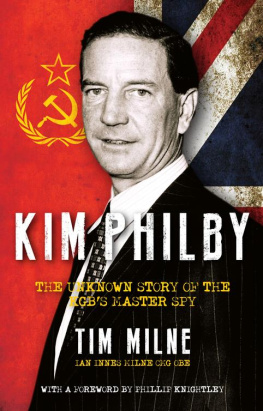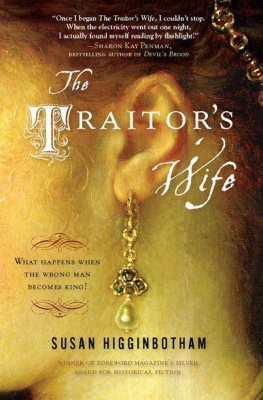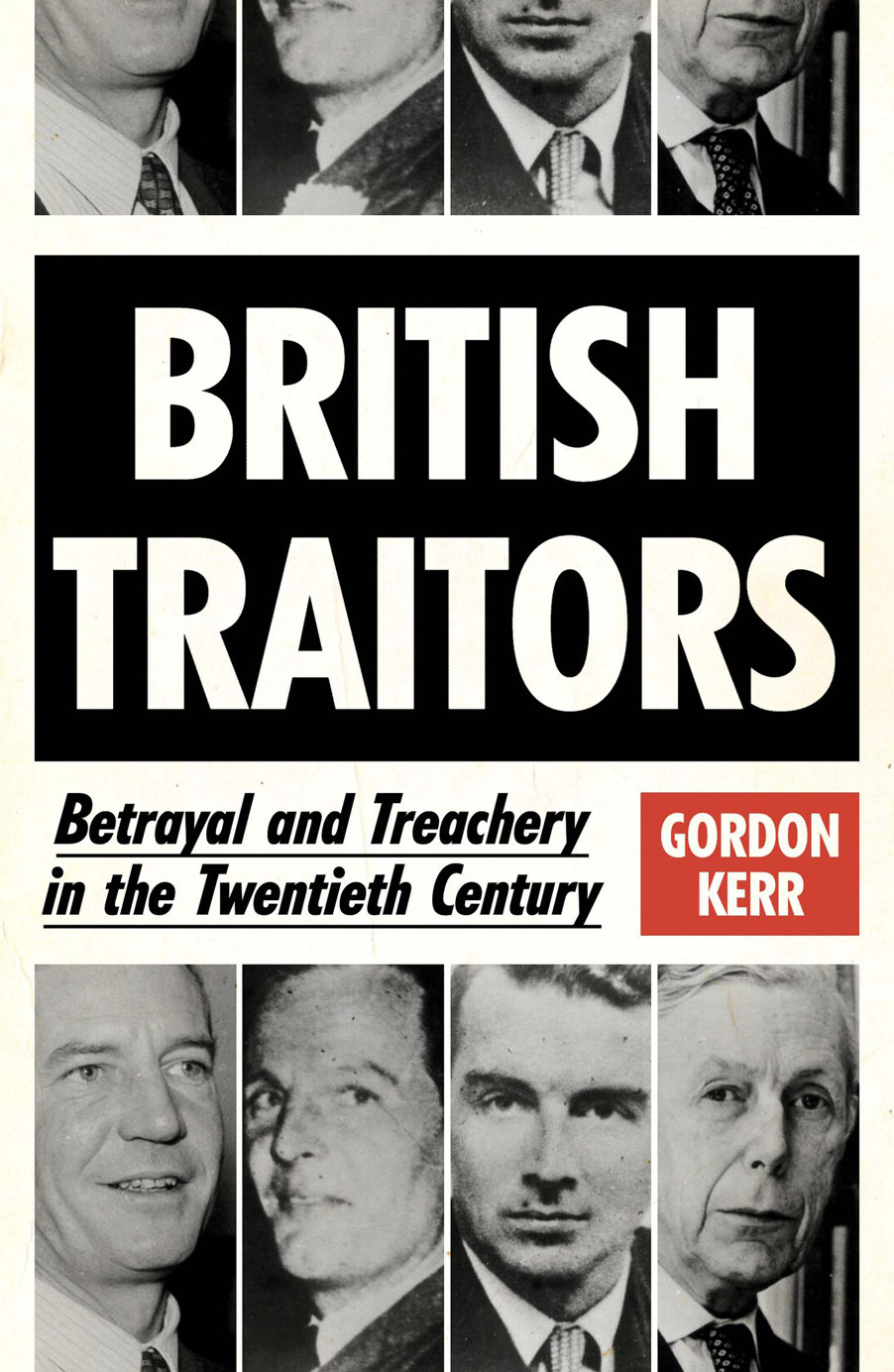

For Jack Boulter, whose idea it was
A nation can survive its fools, and even the ambitious. But it cannot survive treason from within. An enemy at the gates is less formidable, for he is known and he carries his banners openly against the city. But the traitor moves among those within the gates freely, his sly whispers rustling through all the alleys, heard in the very halls of government itself. For the traitor appears no traitor; he speaks in the accents familiar to his victims, and he wears their face and their garments, and he appeals to the baseness that lies deep in the hearts of all men. He rots the soul of a nation; he works secretly and unknown in the night to undermine the pillars of a city; he infects the body politic so that it can no longer resist. A murderer is
less to be feared.
Cicero
Glossary & Abbreviations
ARCOS All-Russian Cooperative Society
BBC British Broadcasting Corporation
BUF British Union of Fascists
C Chief of Secret Intelligence Service
CIA United States Central Intelligence Agency
Comintern Third Communist International (Soviet Union 1919-43), organisation advocating world communism
CPC Combined Policy Committee
CPGB Communist Party of Great Britain
FBI US Federal Bureau of Investigation
GC&CS British Government Code and Cypher School
GCHQ British Government Communications Headquarters (1946 to present day)
GRU Soviet Main Intelligence Directorate, Army General Staff (Glavnoye Razvedyvatelnoye Upravleniye) (1942, 1945-46, 1953 to present day)
HMS Her/His Majestys Ship
Illegal A Soviet agent operating without diplomatic status or protection
JBC Joint Broadcasting Committee
KGB Committee for State Security (Komitet Gosudarstvennoy Bezopasnosti) (USSR: 1954-91)
KPD Communist Party of Germany (Kommunistische Partei Deutschlands)
MI1 Secret Intelligence Service (1916-21)
MI5 Security Service
MI6 See SIS
MI9 Intelligence agency specialising in POW escapes
MI14 Intelligence agency specialising in intelligence about Germany
NKGB Peoples Commissariat for State Security Nardny Komissarit Gosudrstvenno Bezopsnosti
NKVD Peoples Commissariat for Internal Affairs (Nardnyy Komissarit Vntrennikh Dyel) (1934-46)
OTP One-time cipher pad
POW Prisoner of war
RAF Royal Air Force
Rezident Head of Soviet intelligence station
Rezidentura Soviet intelligence station
SIGINT Signals intelligence
SIS Secret Intelligence Service (1921 to present)
UB Polish Secret Police (Urzd Bezpieczestwa)
UDE Underwater Detection Establishment at Portland
YCL Young Communist League
Introduction
The dictionary definition for the complex little 7-letter word traitor is, to say the least, succinct:
traitor a person who commits treason
Chambers Dictionary, 10 th Edition
The operative word is, of course, treason which the same tome defines as betraying or attempting to overthrow ones government, country or sovereign; treachery; disloyalty. In terms of human behaviour, it really does not get much worse. Murder, certainly, is about as low as a human being can stoop, but treachery, being a traitor, perhaps runs it a close second. Some might even say it is a more heinous crime. Of course, there are degrees of treachery and these have historically brought different levels of punishment. Treachery in time of war, for instance, was once not at all the same as treachery in time of peace. The punishment during war throughout much of the twentieth century until the Crime and Disorder Act 1998 abolished it, was death. This, even though capital punishment had ceased to be the punishment for murder as far back as 1965. Being a traitor is, without doubt, a serious matter.
With such a momentous penalty, what motivates a person to become a traitor? As this book demonstrates, there are a number of reasons why an individual would make the decision to betray his or her country. Ideology for one. Many of the major conflicts and confrontations that blighted the last century were, of course, driven by differing ideologies. The Second World War, for instance, produced traitors who fell for the fascist rhetoric of men such as Adolf Hitler, Benito Mussolini and, in Britain, Sir Oswald Mosley. The hatred of people like William Joyce the infamous Lord Haw-Haw and John Amery, was fuelled by the anti-Semitic policies of the Nazis and, to some extent, by the posturing of Mosley and his British Union of Fascists. They broadcast to Britain from Germany, undermining the war effort and promulgating fake news.
The Cambridge spies and others, such as Douglas Dave Springhall and Wilfred Macartney, were driven by their unwavering commitment to communism, their belief in the myth of the Soviet worker-peasant state. And, certainly, in the case of the Cambridge group, there was a belief that the Soviet Union was the only country that would stand up to the spread of Nazism and authoritarianism.
Then there was George Blake, converted to communism during captivity in the Korean War, who famously said: To betray, you must first belong, pointing out that he was an outsider, a man who failed to fit into British society and its class system. The fact that he was a fervent communist made betrayal relatively easy for him.
The development of the atom bomb during the Second World War in the British-Canadian Tube Alloys project and the American Manhattan Project turned several communist British scientists into traitors, men such as Alan Nunn May and Klaus Fuchs, who believed they were levelling the playing field and enabling world peace by passing atomic secrets to the Soviet Union.
Of course, there were others who betrayed their country for more mundane reasons. John Herbert King, who worked in the Foreign Office cipher department in the 1930s, sold secrets to the Russians in order to maintain an expensive mistress and finance his lifestyle. Unknown to him, however, some of the secrets he sold made their way to the Germans and the Italians against whom Britain was fighting. Harry Houghton displayed his desire for cash while working at the British Embassy in Warsaw when he imported goods for sale on the black market. He still had that hankering when he and his mistress, Ethel Gee, began to smuggle top-secret documents out of the Underwater Detection Establishment on Portland in the mid-1950s.
In various differing ways, the thread of sex runs through espionage activities in the twentieth century. The Cambridge spies contained a couple of gay men in Anthony Blunt and the outrageous Guy Burgess, and one bisexual man, Donald Maclean. These men were already in danger of exposure and imprisonment for their lifestyles and so, as people who were adept at living a double life and operating in the shadows, they were probably ideally suited to the double life of the spy. Sex also rears its head in the case of John Vassall, who was caught in a classic homosexual honey-trap which led to him spying for the Soviet Union from 1954 to 1962. Geoffrey Prime, a traitor during the 1960s and 1970s, was only caught because of his arrest for a series of vile sex offences he committed.
Of course, stupidity and arrogance sometimes create traitors. Michael Bettaney was an attention-seeker, but his pleas to spy for the Soviets fell on deaf ears, no matter what material he tempted them with. The Second World War traitors, Theodore Schurch, George Armstrong and Duncan Scott-Ford, were foolish young men who made nave errors and paid for them with their lives.
Next page
